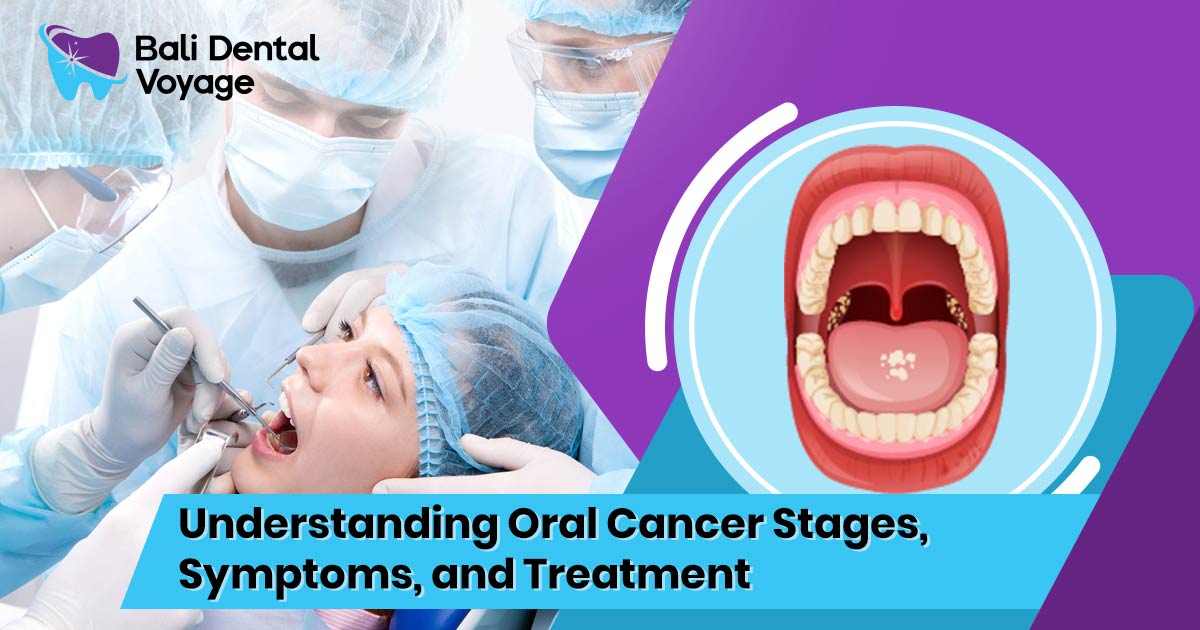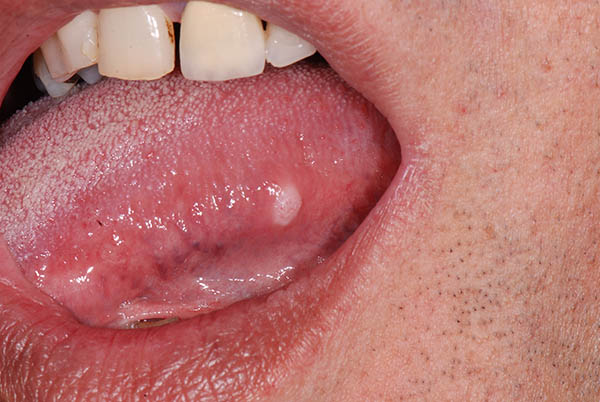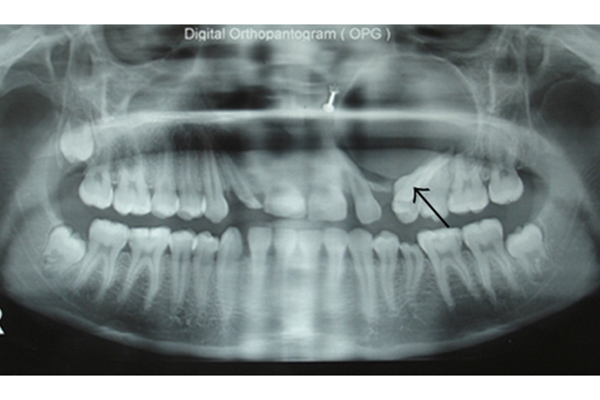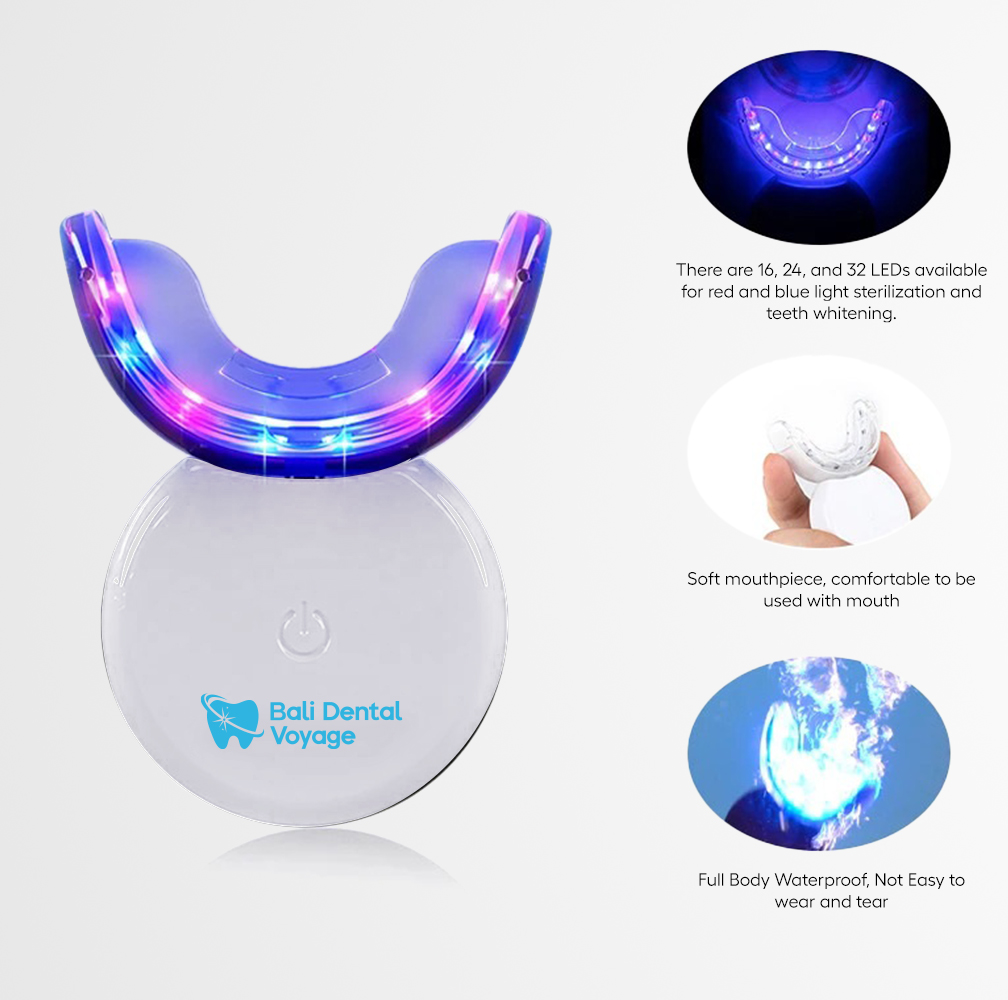
Oral cancer (also known as mouth cancer) is a cancerous condition that originates in the tissues of the mouth or throat. It can affect the lips, tongue, cheeks, gums, roof or floor of the mouth, and throat.
In this article, we will discuss:
- Oral Cancer Stages
- Oral Cancer Symptoms
- Oral Cancer Treatment
- Gum Disease and Oral Systemic Link
- The Role of Regular Dental Visits
Oral Cancer Stages
Mouth cancer is classified into different stages based on the extent of the cancer’s spread. The stages of mouth cancer include:
Stage 0
Also known as carcinoma in cells, this is the earliest stage of mouth cancer. At this stage, the cancer cells are only present in the top layer of the tissue and have not yet invaded deeper tissues.
Stage I
At this stage, the cancer is small and has not spread to nearby lymph nodes.
Stage II
The cancer is larger than stage I but has not spread to nearby lymph nodes.
Stage III
The cancer is larger than stage II and has spread to nearby lymph nodes.
Stage IV
Cancer has spread to other parts of the body or organs, such as the lungs or liver.
Oral Cancer Symptoms

Mouth cancer can cause a range of symptoms, including:
- A persistent lesion or bump in the oral cavity that does not go away
- White or red patches in the mouth
- Difficulty or pain when swallowing
- A persistent sore throat
- Changes in the voice or hoarseness
- A sensation of an object lodged in the throat
- Loose teeth
- A loss of sensation in the tongue or other regions of the mouth
- Swelling in the jaw
- Unexplained weight loss
It is crucial to consult a dentist or doctor as soon as possible if you experience any of these symptoms.
Oral Cancer Treatment
Treatment for mouth cancer depends on the stage and location of the cancer, as well as the patient’s overall health. Treatment options include:
- Surgery
This involves removing the cancerous tissue and may be combined with radiation therapy or chemotherapy. - Radiation Therapy
This uses high-energy rays to kill cancer cells and may be used alone or in combination with surgery or chemotherapy. - Chemotherapy
This involves using drugs to kill cancer cells and may be used alone or in combination with surgery or radiation therapy. - Targeted Therapy
This involves using drugs that target specific proteins or genes in cancer cells to stop their growth.
Your doctor or dentist will recommend the best treatment option based on your situation.
Gum Disease and Oral Systemic Link

Periodontal disease, commonly known as gum disease, is an inflammatory condition that affects the gums and supporting structures of the teeth. It is primarily caused by the buildup of plaque and tartar, which harbour harmful bacteria that can damage the gums over time.
If left untreated, gum disease can progress, leading to tooth loss and affecting overall oral health. The oral-systemic link refers to the intricate connection between oral health and the well-being of other systems in the body.
Emerging research has shed light on how oral health conditions, such as gum disease, can impact various aspects of general health. One notable association is between gum disease and oral cancer, suggesting that individuals with untreated periodontitis might be at a higher risk of developing oral cancer.
The Heightened Risk of Oral Cancer
While periodontal disease itself does not cause oral cancer, it can contribute to an increased susceptibility to developing this form of cancer. Several risk factors associated with gum disease overlap with those linked to oral cancer, creating a compounding effect.
Factors such as alcohol consumption, smoking, and untreated periodontitis can significantly elevate the risk of oral cancer.
The Role of Regular Dental Visits
Understanding the link between gum disease and oral cancer underscores the importance of maintaining excellent oral hygiene practices and seeking professional dental care regularly. Regular dental visits, ideally every six months, allow dentists to detect and treat gum disease at its early stages, reducing the risk of complications and associated health problems.
During these check-ups, dentists can assess the state of your oral health, provide personalised advice on maintaining healthy gums, and address any risk factors that might increase the likelihood of oral cancer. Moreover, dentists can offer guidance on lifestyle modifications, such as quitting smoking and reducing alcohol consumption, to promote both oral and overall health.
Book Now with Bali Dental Voyage for Expert Dental Care
Don’t let mouth cancer or dental emergencies take control of your life. Book an appointment with Bali Dental Voyage today and take control of your oral health. Our web-based booking system makes it easy to schedule appointments for expert tooth extraction in Bali and emergency dentistry in Bali with our experienced team of dentists.
With Bali Dental Voyage, you can enjoy peace of mind knowing that you’re in good hands. Don’t wait until it’s too late – book your appointment now and let us help you achieve optimal oral health.




